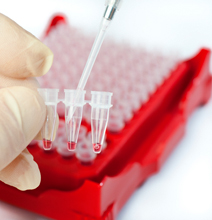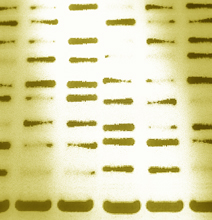FAP and AFAP tests
About 1% of cases of colorectal cancer cases are caused by mutations in the APC gene leading to the development of the FAP (familial adenomatous polyposis) syndrome.
The attenuated form of the disease - AFAP - is associated with mutations in different parts of the same gene.
Recent research has identified the APC gene mutations linked to these cancers, allowing the development of laboratory techniques that can find the mutations using merely a blood sample.
O teste genético mais comum para PAF e APAF envolve a leitura de todo o gene APC, com a sequenciação da totalidade do seu comprimento.
The most common genetic test for FAP and AFAP involves sequencing (reading) the entire APC gene looking for abnormalities.
The genetic test for FAP, unlike the test for HNPCC, can be recommended for children . This because many FAP patients start to get polyps when as young as 10, 11 or 12 years old.
Once the blood test is done, the results might take a few months. When these arrive, your family risk clinician will be able to assess your cancer risk and propose the right measures for the future.






